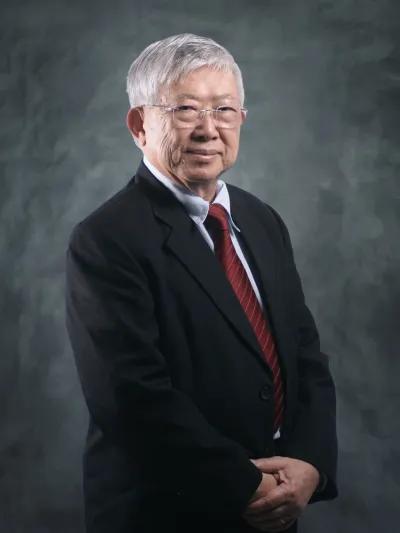
Professor Teo Kok Lay
- Professor
Biography
Professor Teo received his PhD degree in Electrical Engineering from the University of Ottawa, Canada. He is a John Curtin Distinguished Emeritus Professor at Curtin University, Australia, and a Professor at the School of Mathematical Sciences, Sunway University, Malaysia. He is an Academician of The International Academy for Systems and Cybernetic Sciences (IASCYS), a Fellow of the Asian-Pacific Artificial Intelligent Association (AAIA), a Fellow of The Australian Mathematical Society (AustMS), and a Senior Member of IEEE (Life). He was the Chair Professor of Applied Mathematics and Head of the Department of Applied Mathematics at the Hong Kong Polytechnic University from December 1998 to December 2004. He then took up the position as the Professor of Applied Mathematica and Head of the Department of Mathematics and Statistics from January 2005 to December 2010. He was John Curtin Distinguished Professor at Curtin University from January 2011 until his retirement in November 2019. He is now John Curtin Distinguished Emeritus Professor at Curtin University.
He was a member of the Australian Research Council’s (ARC) Mathematical, Information, and Computing Sciences Research Evaluation Committee for the 2010 and 2015 rounds of Excellence in Research for Australia (ERA). Professor Teo has published 6 books and numerous SCI-listed journal papers. His latest book is: Kok Lay Teo, Bin Li, Changjun Yu, and Volker Rehbock, Applied and Computational Optimal Control: A Control Parameterization Approach, Springer Optimization and Its Application 171, 2021. He has a software package, MISER3.3, for solving constrained optimal control problems. His current editorial positions include serving as Editor-in-Chief of the Journal of Industrial and Management Optimization; and as a member of the editorial board of several journals such as Automatica, Journal of Global Optimization, Journal of Optimization Theory and Applications, Optimization and Engineering, Discrete and Continuous Dynamic Systems, Optimization Letters, and Applied Mathematical Modelling. His research interests include theoretical and computational aspects of optimal control and optimization and their practical applications, such as signal processing in telecommunications, process control, and industrial and management optimization.
Academic & Professional Qualifications
- PhD in Electrical Engineering, University of Ottawa, Canada (1974)
- MASc in Electrical Engineering, University of Ottawa, Canada (1971)
- BSc (Telecommunications Engineering), Ngee Ann Technical College, Singapore (1968)
Notable Publications
Lin, Y., Zeng, X., Wang, P., Huang, S., & Teo, K. L. (2024). Variable selection using axis-aligned random projections for partial least-squares regression. Statistics and Computing, 34(3), 1-11. doi: https://doi.org/10.1007/s11222-024-10417-5
Cheng, JH; Zhou, YF; Teo, KL (2024). Bi-Level Programming for Emergency Blood Transshipment-Allocation Considering Substitution Against Public Health Events. Journal of Industrial And Management Optimization. doi: 10.3934/jimo.2024022
Su, SX; Shao, MZ; Yu, CJ; Teo, KL (2024). On The Correlation Of Local Collocation And Control Parameterization Methods. Journal of Industrial and Management Optimization. doi: 10.3934/jimo.2024004
Zhang H.; Sun X.; Teo K.L. (2024). Exact SDP Reformulations for Adjustable Robust Quadratic Optimization with Affine Decision Rules. Journal of Optimization Theory And Applications. doi: 10.1007/s10957-023-02371-5
Sun X.; Huang J.; Teo K.L. (2024). On semidefinite programming relaxations for a class of robust SOS-convex polynomial optimization problems. Journal of Global Optimization. doi: 10.1007/s10898-023-01353-1
Ren, C., Karimi, H. R., He, S., Yin, Y., & Teo, K. L. (2024). On necessary and sufficient conditions for finite-time control of positive stochastic Poisson jump systems. Automatica, 163, 111586. doi: https://doi.org/10.1016/j.automatica.2024.111586



